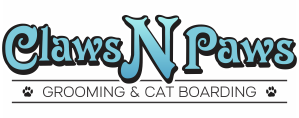 Sometimes, we don’t quite understand our pets’ symptoms. We may know that something is wrong and try to determine the source. However, in many cases, pet parents are ill-equipped to fully assess their pet’s health. Colitis is one of many “confusing” ailments that domestic cats may experience in their lifetime. Knowing the symptoms, risks, and treatments of colitis will make you better equipped to handle your cat’s illnesses.
Sometimes, we don’t quite understand our pets’ symptoms. We may know that something is wrong and try to determine the source. However, in many cases, pet parents are ill-equipped to fully assess their pet’s health. Colitis is one of many “confusing” ailments that domestic cats may experience in their lifetime. Knowing the symptoms, risks, and treatments of colitis will make you better equipped to handle your cat’s illnesses.
What is Colitis?
A cat’s colon regulates the amount of water in their feces. Watery droppings (also known as diarrhea) indicates an irritated or inflamed colon. Many cats have diarrhea; it may be due to allergies, spoiled food, or changes in their environment. When a cat has a sudden but short-term bout of diarrhea, it is called acute colitis. This is not usually a cause for concern. Like us, cats can have upset tummies for a couple of days and be okay.
However, colitis can also be a chronic condition. Chronic colitis results in diarrhea lasting for two to three weeks or more. Colitis can also be episodic, meaning that it reappears in bouts over time. Chronic and episodic colitis are more common in older or middle-aged cats.
What Are the Symptoms?
Mostly, you will be looking out for diarrhea. Cats with colitis may take more frequent trips to the litter box, and there might be bright red blood in their stool. Sometimes, a cat will experience uncontrollable bowel movements, defecating outside of the box.
In cases of chronic or episodic colitis, cats may show other symptoms than diarrhea. They will become dehydrated, emaciated, and/or lethargic. Basically, they will experience a shutdown of their daily processes.
What Are the Causes?
Colitis has a wide range of causes, so prognosis varies by cause and by cat. Colitis may be a result of increased stress or anxiety. It may also be a reaction to food or medication. In more rare cases, parasites, fungal agents, or foreign bodies may cause colitis. Cats may contract colitis if they consume cleaning agents or other toxic substances. Cats with other chronic illnesses such as diabetes and pancreatitis are more likely to experience colitis.
When Should I Go To the Vet?
If you suspect your cat may have chronic or episodic colitis, you should take them to the vet. Treatments include lifestyle changes such as new diets or a calmer environment. They may run some tests to determine underlying factors; this may lead to new medications to treat colitis symptoms.
At Claws N Paws Day Spa in Fountain Valley, California, your dog or cat can find professional grooming services from a dedicated team of groomers. Right next door, your cat can find boarding in our cats-only facility. For more information or to schedule an appointment, call us today at 714-962-1005.
